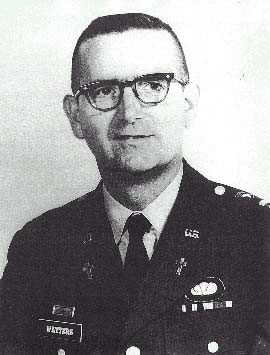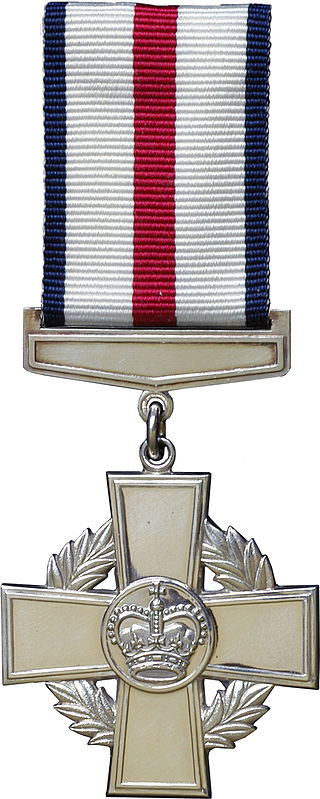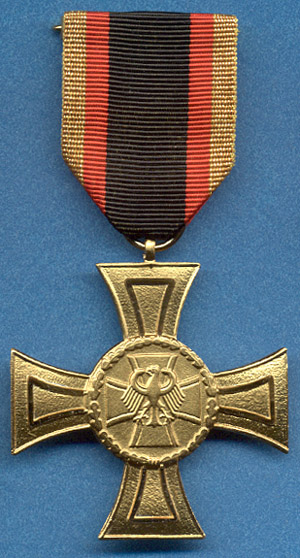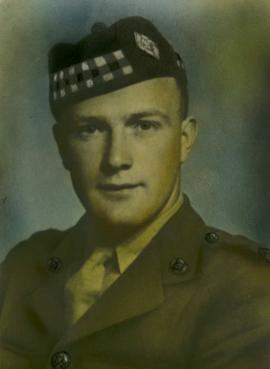The George Cross (GC) is the highest award bestowed by the British government for non-operational gallantry or gallantry not in the presence of an enemy. In the British honours system, the George Cross, since its introduction in 1940, has been equal in stature to the Victoria Cross, the highest military award for valour. It is awarded "for acts of the greatest heroism or for most conspicuous courage in circumstance of extreme danger", not in the presence of the enemy, to members of the British armed forces and to British civilians. Posthumous awards have been allowed since it was instituted. It was previously awarded to residents of Commonwealth countries, most of which have since established their own honours systems and no longer recommend British honours. It may be awarded to a person of any military rank in any service and to civilians including police, emergency services and merchant seamen. Many of the awards have been personally presented by the British monarch to recipients or, in the case of posthumous awards, to next of kin. The investitures are usually held at Buckingham Palace.

Charles Joseph Watters was a chaplain (major) in the United States Army and Roman Catholic priest. He was posthumously awarded the Medal of Honor for bravery exhibited while rescuing wounded men in the Vietnam War's Battle of Dak To.

The Distinguished Service Medal (DSM) was a military decoration awarded until 1993 to personnel of the Royal Navy and members of the other services, and formerly to personnel of other Commonwealth countries, up to and including the rank of Chief Petty Officer, for bravery and resourcefulness on active service at sea.

Andrew Cathcart Bogle VC was a Scottish recipient of the Victoria Cross (VC), the highest and most prestigious award for gallantry in the face of the enemy that can be awarded to British and Commonwealth forces.

Lieutenant Colonel Thomas Bernard Hackett was born in Riverstown, County Tipperary and was an Irish recipient of the Victoria Cross, the highest and most prestigious award for gallantry in the face of the enemy that can be awarded to British and Commonwealth forces.

Lieutenant Henry May VC was a Scottish recipient of the Victoria Cross, the highest and most prestigious award for gallantry in the face of the enemy that can be awarded to British and Commonwealth forces.

Patrick McHale VC was born in Killala, County Mayo and was an Irish recipient of the Victoria Cross, the highest and most prestigious award for gallantry in the face of the enemy that can be awarded to British and Commonwealth forces.

The Conspicuous Gallantry Cross (CGC) is a second level military decoration of the British Armed Forces. Created in 1993 and first awarded in 1995, it was instituted after a review of the British honours system to remove distinctions of rank in the awarding of gallantry decorations. The Victoria Cross is the only higher combat gallantry award presented by the United Kingdom.

The Conspicuous Gallantry Medal (CGM) was, until 1993, a British military decoration for gallantry in action for petty officers and seamen of the Royal Navy, including Warrant Officers and other ranks of the Royal Marines. It was formerly awarded to personnel of other Commonwealth countries. In 1943 a Royal Air Force version was created for conspicuous gallantry in action against the enemy in the air.
The Household Cavalry Regiment (HCR) is an Armoured Cavalry regiment of the British Army based in Bulford Camp in Wiltshire. It is the brother regiment of the Household Cavalry Mounted Regiment (HCMR) based at Hyde Park Barracks in London - both regiments together form the Household Cavalry (HCav). The Household Cavalry Regiment was formed in 1992, under the Options for Change reforms, by the union of The Life Guards and The Blues and Royals in order to preserve the distinct identities of the regiments. A precedent for the Household Cavalry Regiment has previously been set by the Household Cavalry Composite Regiment - active during the Anglo-Egyptian War, the Second Boer War and latterly during both the First and Second World Wars.
An ammunition technician (AT) is a British Army soldier, formerly of the Royal Army Ordnance Corps but since 1993 of the Royal Logistic Corps, trained to inspect, repair, test, store, and modify all ammunition, guided missiles, and explosives used by the British Army. These technicians are also trained to use demolition to safely dispose of individual items of ammunition and explosives (EODs) or to conduct logistics disposal of bulk stocks of multi items. After gaining sufficient experience, those who show the appropriate qualities are given extra training to render safe improvised explosive devices (IEDs) by a process called improvised explosive device disposal. Experienced ATs may be called to give evidence as expert witnesses in criminal or coroner's courts in relation to ammunition or explosives or to EOD and IEDD duties.

The Victoria Cross for New Zealand is a military decoration awarded for valour or gallantry in the presence of the enemy to members of the New Zealand Armed Forces. It may be awarded to a person of any rank in any service and civilians under military command, and is presented to the recipient by the governor-general of New Zealand during an investiture held at Government House, Wellington. As the highest award for gallantry in New Zealand it takes precedence over all other postnominals and medals.

The Decorations of Honour of the Bundeswehr are a series of military decorations of the Bundeswehr, the armed forces of the Federal Republic of Germany. These honours and awards were introduced in 1980 on the occasion of the 25th anniversary of the Bundeswehr by then Minister of Defence Hans Apel and subsequently approved by President of the Federal Republic Karl Carstens.

The 190th Fighter Squadron, Blues and Royals friendly fire incident was a friendly fire incident involving two United States Air Force (USAF) Air National Guard 190th Fighter Squadron A-10 Thunderbolt II ground attack aircraft, and vehicles from the British D Squadron, The Blues and Royals of the Household Cavalry, and took place on 28 March 2003 during the invasion of Iraq by armed forces of the United States and United Kingdom. In the incident, the two USAF A-10s fired on and destroyed two Blues and Royals armored vehicles, killing one British soldier, and wounding five others.

Captain Douglas Ford, was a British Army officer of the Royal Scots and a British prisoner of war in the Second World War, who was posthumously awarded the George Cross for conspicuous gallantry. His citation was published in the London Gazette on 18 March 1946.
Signalman Kenneth Smith GC was a British Soldier of the Royal Corps of Signals, who was posthumously awarded the George Cross for the bravery he showed on the night of 10 January 1945 on the island of Ist in the Adriatic when attached to the Long Range Desert Group.

Captain Simmon Latutin GC was a British Army officer who was posthumously awarded the George Cross, the highest British award for bravery out of combat. He won his award for the gallantry he showed in rescuing two comrades, and attempting to save a boy, from a blazing ammunition store on 29 December 1944 in Mogadishu, Somaliland.

The Deccan Horse or 9 Horse is one of the oldest and most decorated armoured regiments of the Indian Army. The Royal Deccan Horse , which was a regular cavalry regiment of the British Indian Army was formed from the amalgamation of two regiments after World War I. They saw service from the Mutiny of 1857 up to and including World War II.
Michael John Flynn, is one of the British Army's most decorated members in recent years.














